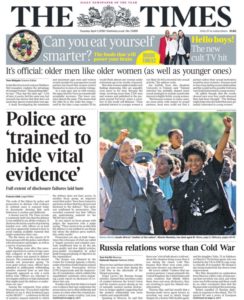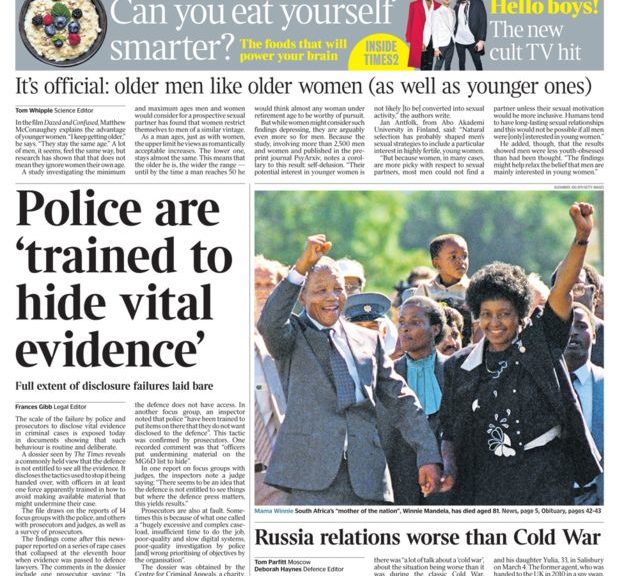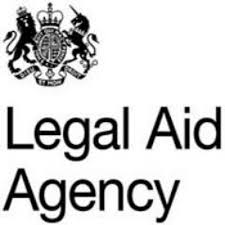Following on from the revelations about failures in disclosure identified last year, on 3 April The Times published further information about the scale of the failure by the police and  prosecution to disclose evidence vital to fair trials. It is claimed that the failure to disclose such key evidence is both routine and deliberate, including hiding evidence within sensitive material schedules.
prosecution to disclose evidence vital to fair trials. It is claimed that the failure to disclose such key evidence is both routine and deliberate, including hiding evidence within sensitive material schedules.
These reports are against a background of interest in the criminal justice scheme, including a BBC Survey, the publishing of a Charter for Justice and a campaign to send every sitting MP a copy of the recently published book by the Secret Barrister about the crisis in the criminal justice system.
A dossier has been produced that draws on the reports of a number focus groups held with the police, prosecutors and judges. The file also includes the results of a survey of prosecutors. It was obtained by the charitable organisation The Centre for Criminal Appeals.
Helpful evidence hidden on sensitive material schedules
The research has identified a commonly held view that the defence is not entitled to see evidence that might undermine the case against an accused. Tactics are adopted by the police to stop it being handed over. At least one force trains its officers to hide such material in a ‘sensitive material’ schedule which means the defence are unlikely to discover that is exists and disclosure may well be avoided.
One comment from a police focus group was ‘If you don’t want the defence to see it, then [evidence] goes on the MG6D’, this list of ‘sensitive material’.
A prosecutor is quoted as saying that ‘In even quite serious cases, officers have admitted to deliberately withholding sensitive material from us and they frequently approach us only a week before trial. Officers are reluctant to investigate a defence or take statements that might assist the defence or undermine our case”.
Material should only appear on a sensitive material schedule where the disclosure office believes its disclosure ‘would give rise to a real
risk of serious prejudice to an important public interest.’ The reason for that belief should also be stated, and the officer must sign off on the schedule.
It is envisaged that such sensitive material will not just be that which helps the defendant. Instead, examples are:
- material relating to national security;
- material received from the intelligence and security agencies;
- material relating to intelligence from foreign sources which reveals sensitive intelligence gathering methods;
- material relating to the identity or activities of informants, or undercover police officers, or witnesses, or other persons supplying information to the police who may be in danger if their identities are revealed;
As a result it is unlikely to include evidence that simply points to the innocence of a defendant.
Prosecution also at fault in disclosure decisions
However fault is also identified on the part of prosecutors. Sometimes this is due to the volume of cases, in combination with a lack of time to do the job properly, poor quality police investigations and the pursuit of ‘wrong’ priorities.
It remains to be seen whether the new Director of Public Prosecutions who will replace Alison Saunders when her contract expires in the autumn will have the resources to effect any meaningful change.
Instruct VHS Fletchers to ensure adequate disclosure
A judge within one of the focus groups observed, ‘There seems to be an idea that the defence is not entitled to see things but where the defence press matters, this yields results.’
As a result, until the culture changes and more resource is made available, to a great extent an accused will be dependent upon their  lawyer identifying whether material is likely to exist and make an appropriate application for disclosure.
lawyer identifying whether material is likely to exist and make an appropriate application for disclosure.
Our team of experienced Crown Court litigators and advocates will ensure that disclosure in any particular case is meaningful, rather than, as one prosecutor put it, ‘more of an administrative exercise‘.
You can read about two recent cases where our requests for disclosure made a difference here and here.
Find your nearest office here or use the contact form below.




